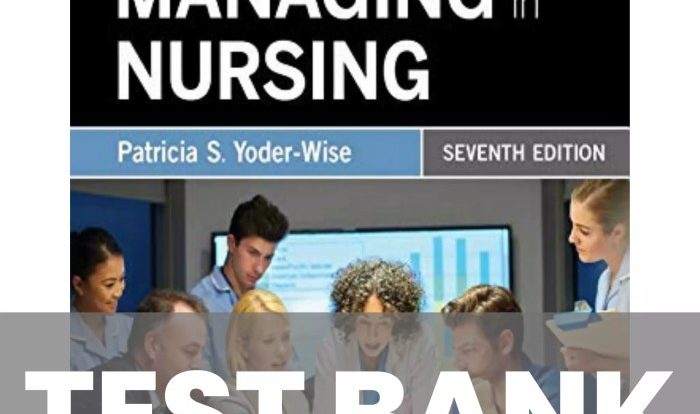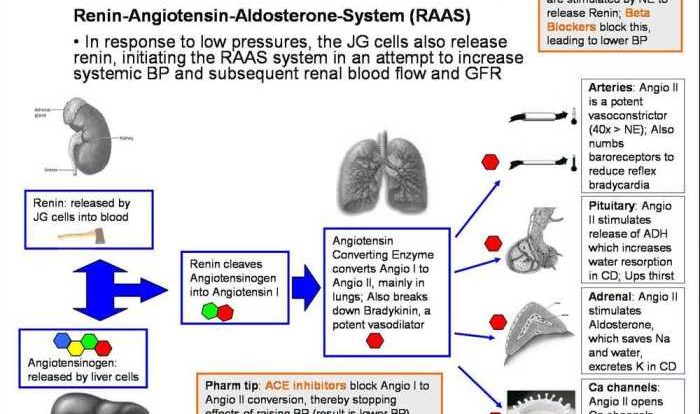The HOSA Clinical Nursing Practice Test is an invaluable tool for aspiring nurses to assess their knowledge and skills in preparation for the National Certification Exam. This comprehensive test provides a detailed analysis of key nursing concepts, helping candidates identify areas for improvement and develop effective study strategies.
As a nationally recognized certification, the HOSA Clinical Nursing Practice Test offers numerous benefits, including enhanced confidence, improved job prospects, and increased earning potential. By utilizing the resources and guidance provided in this guide, candidates can maximize their chances of success on the test and embark on a fulfilling career in nursing.
HOSA Clinical Nursing Practice Test Overview
The HOSA Clinical Nursing Practice Test is a comprehensive assessment designed to evaluate the clinical knowledge and skills of nursing students.
The test consists of multiple-choice questions that cover a wide range of nursing practice areas, including medical-surgical nursing, pediatrics, obstetrics, and mental health. The test is designed to be challenging but fair, and it is an excellent way for students to assess their progress and identify areas where they need additional study.
Target Audience and Eligibility, Hosa clinical nursing practice test
The HOSA Clinical Nursing Practice Test is intended for nursing students who are preparing for the HOSA National Leadership Conference (NLC). To be eligible to take the test, students must be enrolled in a nursing program and be a member of HOSA.
Test Preparation Strategies

Effective preparation for the HOSA Clinical Nursing Practice Test requires a comprehensive approach. This involves utilizing efficient study methods, focusing on key concepts, and employing effective time management and test-taking strategies.
Effective Study Methods
- Active Reading:Engage with the study material by highlighting, annotating, and summarizing key points.
- Spaced Repetition:Review the material at increasing intervals to strengthen memory retention.
- Practice Questions:Solve practice questions to identify areas for improvement and build confidence.
- Study Groups:Collaborate with peers to discuss concepts, exchange ideas, and reinforce learning.
Key Concepts and Topics
Focus on the following key concepts and topics:
- Patient Assessment and Evaluation
- Nursing Interventions and Treatments
- Patient Education and Counseling
li>Ethical and Legal Considerations
Time Management and Test-Taking Strategies
- Time Allocation:Determine the time to allocate to each section of the test based on its difficulty and weightage.
- Prioritization:Focus on answering questions you are confident about first to maximize points.
- Elimination:Rule out incorrect options to increase the chances of choosing the correct answer.
- Guessing:If unsure, make an educated guess to avoid leaving questions unanswered.
Test Content Analysis
The HOSA Clinical Nursing Practice Test covers a comprehensive range of topics relevant to nursing practice. These topics encompass essential nursing skills, knowledge, and competencies that aspiring nurses must possess to provide safe and effective patient care.The test content is divided into five major domains:
- Patient Care: This domain assesses the nurse’s ability to provide holistic patient care, including assessment, planning, implementation, and evaluation of nursing interventions.
- Health Promotion and Maintenance: This domain focuses on the nurse’s role in promoting health, preventing illness, and maintaining wellness.
- Pharmacology: This domain evaluates the nurse’s understanding of medication administration, dosage calculations, and drug interactions.
- Leadership and Management: This domain assesses the nurse’s ability to lead and manage patient care, including delegation, conflict resolution, and quality improvement.
- Professionalism: This domain evaluates the nurse’s ethical and legal responsibilities, as well as their commitment to lifelong learning and professional development.
Patient Care
This domain covers a wide range of nursing skills and knowledge, including:
- Assessment and interpretation of patient data
- Planning and implementation of nursing care plans
- Evaluation of patient outcomes
- Medication administration
- Wound care
- Infection control
Examples of common questions in this domain include:
- A patient with a history of heart failure presents with shortness of breath and edema. What assessment findings would you expect to find?
- A patient is prescribed a new medication. What information should you provide to the patient before administering the medication?
Health Promotion and Maintenance
This domain assesses the nurse’s understanding of health promotion and disease prevention strategies. Topics covered include:
- Health education and counseling
- Lifestyle modification
- Immunization
- Disease screening
- Chronic disease management
Examples of common questions in this domain include:
- What are the key elements of a patient education plan for a patient with diabetes?
- What are the recommended screening guidelines for breast cancer?
Pharmacology
This domain evaluates the nurse’s knowledge of pharmacology and its application in nursing practice. Topics covered include:
- Drug classification and mechanism of action
- Dosage calculations
- Drug interactions
- Medication administration
- Adverse drug reactions
Examples of common questions in this domain include:
- A patient is prescribed a new medication. What factors should you consider when calculating the dosage?
- What are the potential drug interactions between aspirin and warfarin?
Leadership and Management
This domain assesses the nurse’s ability to lead and manage patient care. Topics covered include:
- Delegation of tasks
- Conflict resolution
- Quality improvement
- Staff development
- Budget management
Examples of common questions in this domain include:
- What are the key principles of effective delegation?
- How would you resolve a conflict between two nurses on your team?
Professionalism
This domain evaluates the nurse’s ethical and legal responsibilities, as well as their commitment to lifelong learning and professional development. Topics covered include:
- Nursing ethics
- Legal aspects of nursing practice
- Continuing education
- Professional development
- Patient advocacy
Examples of common questions in this domain include:
- What are the ethical considerations when caring for a patient who refuses treatment?
- What are the nurse’s legal responsibilities when administering medication?
Practice Questions and Solutions
Practice questions provide an invaluable opportunity to gauge your understanding of the test content and identify areas for improvement. By engaging with practice questions, you can familiarize yourself with the question formats and hone your critical thinking skills.
Multiple Choice Questions
Multiple choice questions present a stem with several answer choices. Select the best answer based on your knowledge of the content area.Example Question:Which of the following is NOT a nursing intervention for a patient with pneumonia?(A) Oxygen therapy(B) Chest physiotherapy(C) Intravenous fluids(D) AntibioticsSolution:(C) Intravenous fluidsIntravenous fluids are not typically used to treat pneumonia, as they can worsen pulmonary edema.
True/False Questions
True/false questions require you to determine whether a statement is true or false.Example Question:True or False: Auscultation of crackles in the lungs is a sign of atelectasis.Solution:FalseCrackles are indicative of fluid in the lungs, which is a sign of pulmonary edema or pneumonia, not atelectasis.
Case Studies
Case studies present a clinical scenario and ask you to apply your knowledge to make decisions and formulate a plan of care.Example Case Study:A 65-year-old female presents to the emergency department with shortness of breath and chest pain. Her vital signs are: BP 150/90 mmHg, HR 110 bpm, RR 28 breaths/min, and SpO2 88% on room air.
Physical exam reveals crackles in the lungs and decreased breath sounds on the right side.Questions:
- What is the most likely diagnosis?
- What nursing interventions are indicated?
Solutions:
- Pneumonia
- Oxygen therapy, chest physiotherapy, antibiotics, pain management
Test-Taking Tips and Resources
To excel in the HOSA Clinical Nursing Practice Test, effective preparation and strategic test-taking techniques are crucial. This section provides valuable tips and resources to enhance your confidence and optimize your performance during the exam.
Time management is paramount. The test consists of multiple-choice questions that must be completed within a specific time frame. Allocate your time wisely, ensuring you answer all questions without rushing or spending excessive time on any particular question.
Stress Management
Stress management is equally important. Excessive anxiety can hinder your ability to focus and perform optimally. Employ relaxation techniques, such as deep breathing exercises or visualization, before and during the test to manage stress levels and maintain a clear mind.
Additional Resources
Utilize available resources to enhance your preparation. Practice tests simulate the actual exam format and provide valuable insights into your strengths and areas for improvement. Study guides offer comprehensive reviews of key concepts and can help you identify areas that require additional attention.
- Official HOSA Clinical Nursing Practice Test Website: https://hosa.org/programs/clinical-nursing/
- HOSA Clinical Nursing Practice Test Study Guide: https://www.hosanational.org/wp-content/uploads/2022/03/Clinical-Nursing-Practice-Test-Study-Guide.pdf
- Online Practice Tests: https://www.test-guide.com/tests/hosa-clinical-nursing-practice-test/
Expert Answers: Hosa Clinical Nursing Practice Test
What is the purpose of the HOSA Clinical Nursing Practice Test?
The HOSA Clinical Nursing Practice Test is designed to assess the knowledge and skills of nursing students and professionals in preparation for the National Certification Exam.
What are the benefits of taking the HOSA Clinical Nursing Practice Test?
Taking the HOSA Clinical Nursing Practice Test offers numerous benefits, including enhanced confidence, improved job prospects, and increased earning potential.
Who is eligible to take the HOSA Clinical Nursing Practice Test?
Nursing students and professionals who meet the eligibility requirements set by the HOSA organization are eligible to take the HOSA Clinical Nursing Practice Test.

